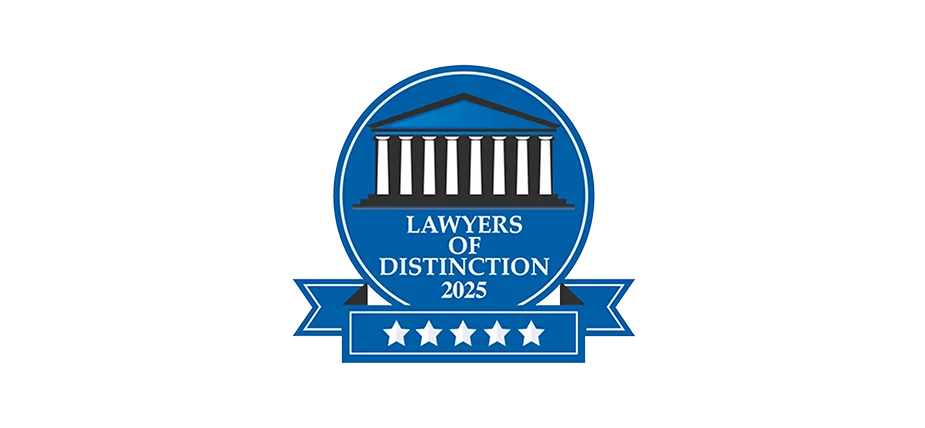Understanding Expense Reimbursement Laws
As a California resident, you are safeguarded through both state and federal employment laws that ensure employees are compensated for any job-related expenses they incur.
The goal is to ensure that employees are not burdened with work-related expenses. These laws also prevent potential abuses by employers who may shortchange their employees by not giving timely reimbursement or none at all.
What Is Expense Reimbursement?
Expense reimbursement is an employer’s legal obligation, as mandated by the California Labor Code, to pay employee reimbursements for all reasonable and actual work-related expenses or losses incurred as part of performing their job.
Legal Obligations of Employers Under California Labor Code
Expense reimbursement is not optional or a matter of preference for employers. They are required by California Labor Code 2802 to reimburse their employees’ job-related expenses or losses incurred in the discharge of their duties. Failure to reimburse is a violation of employee rights and has legal consequences.
Practice Areas
Why Choose Colby Law Firm for Your Unpaid Breaks & Expense Reimbursement Case?
Employment Law Expertise
Our attorneys are well-versed in the nuances of employment law, including cases involving employment discrimination, minimum wages, and overtime and unpaid wages. We understand the stringent requirements of the Californian Labor Code. This allows us to help you address any violations and advocate for your rights.
Free Case Evaluation
We offer a free case evaluation for individuals dealing with unpaid breaks or reimbursement issues. Our employment attorneys will thoroughly review your case to determine the best course of action. This free evaluation allows you to understand your legal rights and options without any financial commitment.
Trusted & Licensed
Colby Law Firm employment attorneys are licensed to practice law in the state of California. Our attorneys maintain active memberships with professional associations and organizations to stay up-to-date with the latest legal developments, ensuring our clients receive informed and reliable representation.
Assertiveness, Not Aggressiveness
At Colby Law Firm, we believe in a strategic and assertive approach that advocates strongly for our clients’ rights without resorting to unnecessary aggressiveness. Our focus is on achieving the best possible outcomes through thorough preparation, clear communication, and decisive action. While some firms may rely on overly aggressive tactics that can escalate conflicts or harm relationships, we prioritize professionalism and well-reasoned strategies that protect our clients’ interests and foster positive resolutions.
Types of Reimbursable Expenses
The law defines which types of work-related expenses employers must reimburse. The law protects employers from being asked to cover personal expenses or excessive and unnecessary spending by employees. It also protects employees from having to pay for business-related expenses.
Which expenses are reimbursable and which are not? Here’s a rundown.
Travel Expenses
In California, commuting to and from work is not considered hours worked. However, employers are required to reimburse employees for mileage when they use their personal vehicles to travel between work sites while on the clock.
Many employers use the IRS rate for personal vehicle mileage reimbursement, which is $0.67 cents per mile as of June 2024, as the rate at which they reimburse employees. They may also reimburse the actual expense incurred or provide a travel stipend.
To qualify for mileage reimbursement, the expense should be for business purposes and be documented for mileage, dates, and locations.
Office Supplies and Equipment
Employees who spend on office supplies for work should be reimbursed under Labor Code section 2802. This also covers work-related costs such as laptops, printers, uniforms, and internet access.
To seek reimbursement, the employee must provide receipts, logs, bills or invoices, and delivery receipts.
Remote Work Reimbursements
Employees who work remotely or are on a business trip should be reimbursed for work-related expenses such as internet access, cell phone services, meals, accommodations, and other necessary work-related expenses.
Common Issues with Expense Reimbursements
If you have problems with your reimbursement claims, you can file a complaint to any of the Labor Commissioner’s Office in person or online. You can also file a civil lawsuit in a California court. You might consider one of those options if you encounter these challenges with your employer refusing to reimburse you or disputing the amount of your reimbursement request.
Refusal to Reimburse
If your employer refuses to reimburse you for legitimate work-related expenses and you file a complaint with the Labor Comissioner’s Office, they will conduct an investigation to determine whether your claim is valid. If found valid, the Labor Commissioner’s Office can order your employer to reimburse you the amount due plus penalties and interest if applicable.
Disputed Amounts
If your employer agrees to reimburse your expense but disputes the amount of your reimbursement claim, you can provide justification documents as per CA Labor Code 2802 to resolve the issue.
If unresolved, you can raise a complaint with your HR and then escalate it to the Labor Commissioner’s Office.
You can also consult with a reimbursement lawyer to pursue legal action.
Unpaid Breaks: Know Your Rights
As per the California Labor Law provisions, employees in California are entitled to meal and rest breaks.
Understanding Meal Breaks
As per the California Labor Code section 512, employees have the right to an unpaid meal break of at least 30 minutes when working for over five hours—this can be waived if the shift is less than 6 hours. Employees working more than 12 hours are entitled to an additional 30-minute unpaid meal break. All unpaid breaks should be uninterrupted.
If the employee is not relieved of all duties, such as while being on call or monitoring equipment, these breaks must be paid.
Understanding Rest Breaks
Every four hours of work entitles an employee to a 10-minute break. Workers who work in open sites should be allowed breaks to stay under a shade and cool off to avoid heat exhaustion. These rest breaks are considered part of work hours and are not deducted from employees’ wages; rest breaks are paid breaks.
Premium Pay for Missed Breaks
Employees are entitled to one hour of regular pay for each missed meal break and rest break. Regular rate pay means base pay plus other kinds of remuneration such as per piece of work bonus, commissions, etc.
Frequently Asked Questions
Does My Employer Have To Pay for My Internet if I Work Remotely?
Can My Employer Limit My Travel Reimbursement?
What Should I Do if My Employer Refuses to Reimburse Me?
Certifications
Our Certification and Awards








Certifications
Our Certification and Awards







Testimonials
What Clients Say About Our Unpaid Breaks & Expense Reimbursement Case Defense

Contact Us for a Free Consultation
Having reliable and committed legal representation for your case is crucial to getting what’s due to you within the framework of the law. Let Colby Law Firm’s lawyers advise and guide you in your legal pursuit so you can enforce your rights as a resident of California. You can contact us at 818-390-9786 or write to us at [email protected]
Are You in Need of an Unpaid Breaks and Expense Reimbursements Lawyer Near You in California?
If you are in California and facing issues with unpaid breaks or unreimbursed expenses, the Colby Law Firm is here to help. With extensive experience in handling cases related to unpaid breaks and expense reimbursements, we provide robust legal support tailored to your specific needs.
Let the Colby Law Firm be your trusted partner. Reach out to us for a free case evaluation and take the first step toward resolving your employment law issues.
